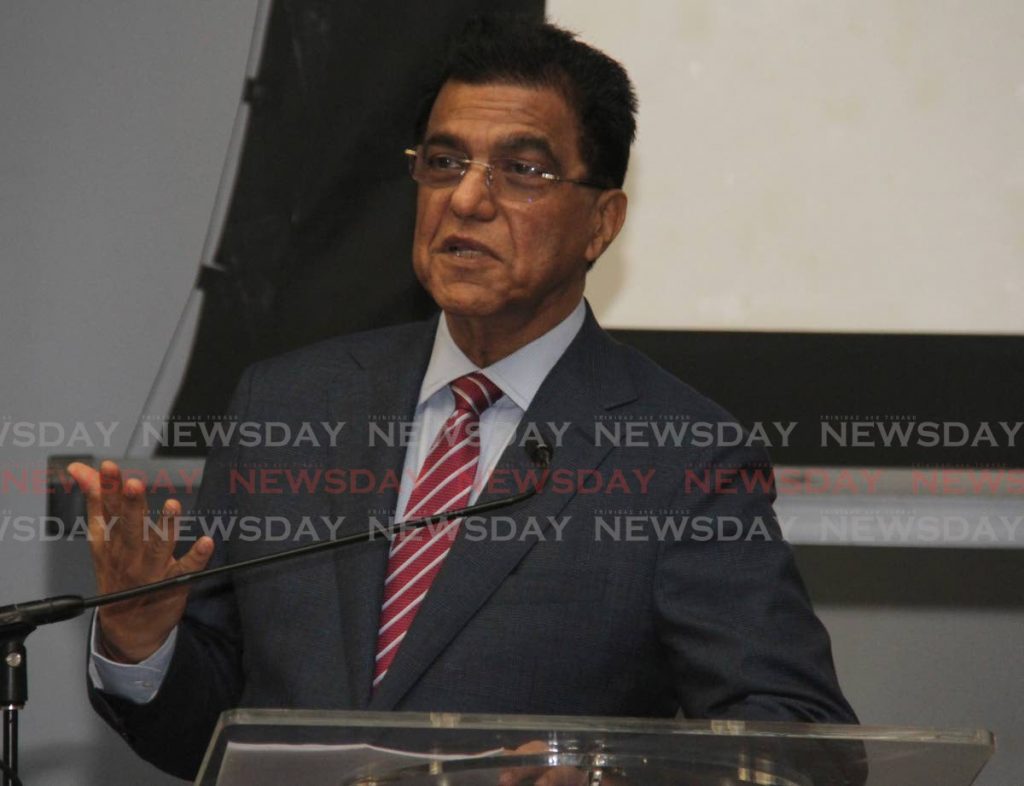Ramesh: Privy Council ruling says politicians must have 'thick skin'

A Privy Council judgment in favour of St Augustine MP Prakash Ramadhar has been described by Ramesh Lawrence Maharaj, SC, as a landmark ruling in relation to the public speech of politicians. He said the judgment gave the media and ordinary citizens greater ability to challenge politicians on any public statement they made.
At a news conference at his Irving Street office in San Fernando, Maharaj said the judgment showed that politicians could not be "shrinking violets" or thin-skinned when it came to their public conduct and their response to public criticism.
On Monday, Ramadhar won his defamation appeal at the Privy Council. That ended a saga which began seven years ago, when Ramadhar's brother Kishore, Rudolph Hamanji and Satu-Ann Ramcharan sued him for defamation in relation to statements he made then as COP political leader at a news conference after the party's national council meeting in November 2013.
At that meeting, Maharaj said the council considered resolutions brought by Kishore, Hamanji and Ramcharan for the COP's national executive to withdraw from the PP coalition and account for his leadership of the COP. Before the meeting, Maharaj said the trio "courted the media" and publicly criticised Ramadhar's leadership.
He said the PNM claimed in October 2013, that three COP local government candidates were not COP members and it had details of the COP membership. At the council meeting in November, Maharaj continued, a letter addressed to the PNM's secretary and claiming to have the trio's signatures was read out. A resolution was moved to suspend the trio from the council and the national executive, pending an investigation.
In 2014, Maharaj said that investigation determined the trio did not write the letter.
At Ramadhar's press conference in November 2013, he made no judgment on the letter's authenticity but said it was an act of betrayal for members to provide another party with the COP's membership lists. He was also critical of the trio's behaviour in general.
On Monday, speaking on the Privy Council's ruling, Maharaj said the judgment was a double reversal of decisions against Ramadhar by the High Court and the Court of Appeal.
Maharaj said the ruling meant, "Politicians are not expected to be shrinking violets when answering their critics." He added, politicians could not expect to be free from banter and ridicule, good humoured or otherwise or from scrutiny of their motives."
The Privy Council, Maharaj continued, observed that if politicians were entitled to be protected by the law of defamation against mere criticism it would have "a chilling effect on the democratic debate." He explained the judgment set a legal precedent that "politicians talking in the public should observe high standards of accuracy and fairness because the public needs to know the true position."
He hoped the judgment would encourage all of TT's politicians to act more responsibly. But he offered no opinion if he thought TT's politicians were thin-skinned. As a former attorney general and MP, Maharaj said he was thick-skinned and did not resort to the practice of some politicians of issuing pre-action protocol letters when they were criticised. He opined that had he done so, he would be dealing with those matters in court for "the next 15 years."
Maharaj believed the judgment gave the media and ordinary citizens greater ability to challenge politicians on any public statement they made.
Also speaking at the press conference, Ramadhar declared he had never been a shrinking violet in TT's politics.
"I believe in democracy and free speech."
He also said be bore no malice towards anyone. While disappointed by the ruling against him in the local courts, Ramadhar was grateful for the Privy Council's ruling and its continued status as TT's final appellate court at this time.


Comments
"Ramesh: Privy Council ruling says politicians must have ‘thick skin’"